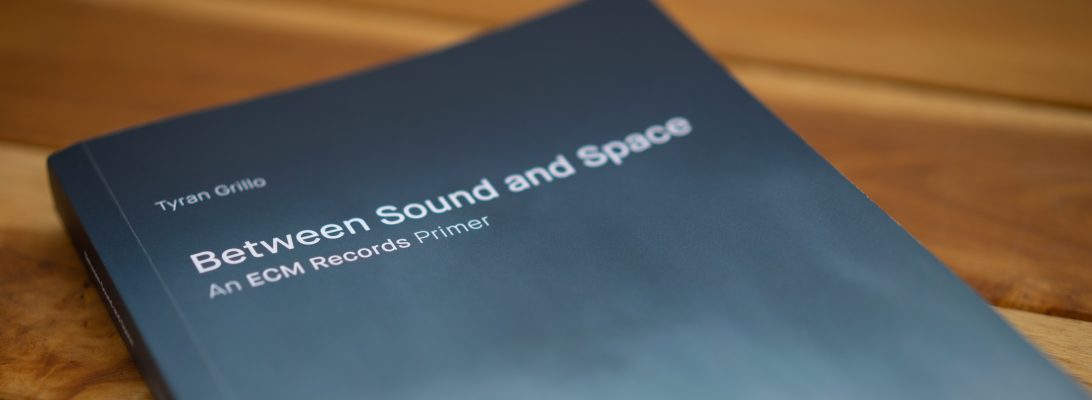Susanne Abbuehl
Compass
Susanne Abbuehl voice
Wolfert Brederode piano
Christof May clarinet, bass clarinet
Lucas Niggli drums, percussion
Michel Portal clarinet (on two tracks)
Recorded January 2003 and October 2004 at Rainbow Studio, Oslo
Engineer: Jan Erik Kongshaug
Produced by Manfred Eicher
Leave dreams to the dreamers
That will not after,
That song and laughter
Do nothing move.
–James Joyce
Compass is more than the title of Susanne Abbuehl’s sophomore ECM album. It is also a physical manifestation of the singer’s artistry. The compass guides with a needle fluid and true, trembling at the slightest change in direction to indicate north. Aiding Abbuehl in this navigation is pianist Wolfert Brederode, clarinetist Christof May, and drummer Lucas Niggli over a span of 12 songs. The number implies a compass of a different register—the clock—and grander others—the solar system, and by extension the Milky Way (hence, perhaps, the cover of her label debut, April)—which dictate the sweep of the clock’s hands with such precision that mortal instruments can only sample a simulacrum of their taste.
That said, Abbuehl’s originality in a planetary system of so-called “jazz vocalists” spins like an instrument celestial, an undiscovered body whose reflection shines through the introductory telescope of “Bathyal.” The words and music are her own, emerging from a primal bass clarinet, dark as the sun is bright, as a vessel down the piano’s river run. The feeling of water, overwhelming enough to drown out the noise of the world, carries also a promise of depth in nature, its tickling spray a mist of love. “Do not run just yet / Do not hide,” she implores: less a challenge to the listener than it is to her own emotions, without which the album’s remainder would fade along with the salmon in their streams.
Two selections—“Black Is The Color…” and “Lo Fiolairé”—from Luciano Berio’s Folk Songs are subjected to unique investigation. The words are carried along by a rather different current, this of charcoal in the form of two clarinets (Michel Portal provides the second reed). In her bare renditions, Abbuehl underscores the power of melodies to overcome the means of their expression. Tied in a braid of lyrical hair, their elements grow along an ebony trail of origins in strands of night and shadow. The Berio inclusion hints at a less obvious connection to the poetry of James Joyce, whose words the Italian composer set to music in 1953, as does Abbuehl for the new millennium. Here she draws inspiration from the same collection, 1907’s Chamber Music. These revivals come in the form of “The Twilight Turns From Amethyst,” “Bright Cap And Streamers,” and “In The Dark Pine-Wood.” In them lies another version of the album’s eponym: as color wheel in the painter’s hand (yellow, as Abbuehl sings later in William Carlos Williams’s “Primrose,” is not a color, but is among other things a shadow). Their circadian approach to worldly being bleeds through the clarinet’s fleshy overlap, a call for unity through real-time calculations of difference. Brederode’s keyboard—the ever-present messenger, the mournful traveler who finds beauty in rest—carves a hovel in every tree along the way, until only a shell of the journey remains. Joyce breathes also through “Sea, Sea!” This song from Finnegan’s Wake outlines a bridge, a meeting of souls across unfathomable expanse, and weaves a basket of alliterations against Niggli’s earthen percussion.
Chinese poet Feng Menglong of the late Ming dynasty rises from the deep in “Don’t Set Sail,” a love poem that is about as hopeful as the waves it fears—although with Brederode behind her, Abbuehl needs no oars. This song pairs hauntingly with the last track, which in having brought us over water now keeps us from it, under threat of storm and chop. A potent metaphor for the solitary heart. Sun Ra’s “A Call For All Demons” unearths deeper loneliness, washed in mercury, while “Children’s Song No. 1,” comes from Chick Corea’s landmark collection of piano miniatures, turns the Tarot card over to reveal a bluebird’s Empress flight.
Although “Where Flamingos Fly” is a jazz standard (the album’s only), it feels the least familiar in the present company. Its distance is emphasized by the soulful clarinet, of which the rasp of breath and wood runs its fingers along the edge of every utterance. Like the album as a whole, it finds in its source a new seed to sprout. In light of this, to call Abbuehl’s arrangements understated would itself be an understatement. Sparse though they are, their awareness of negative space is as thick as the pitch that holds the stars in place.


